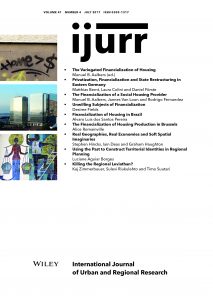This study examines how the past is used in the construction of regional identity narratives in policy discourses and documents. Despite assumptions that regional identity is based on shared culture, some authors argue that new forms of regional identity have emerged as the consequence of regions’ involvement in wider networks. Identity has been pursued as an asset to regional attractiveness and economic growth and, as such, is shaped by regional development strategies concerning particular social groups. Socially shared representations of the past through history, cultural heritage and collective memory play an important role in this process, since the past is a powerful resource that may be used to construct images of places, legitimizing claims on territories. Document analysis and interviews with planners are used to analyse strategies for regional development in five counties located in the Mälardalen region, Sweden. This study shows that regional strategies are guided by narratives framing regions from an exclusive outside perspective, leaving internal qualities unnoticed. The past is used to structure these narratives and construct identities that serve economic growth rather than the integration of the plural heritages of the region.
Details
Written by:
Luciane Aguiar Borges
Digital Object Identifier (DOI)
10.1111/1468-2427.12481
About DOI

